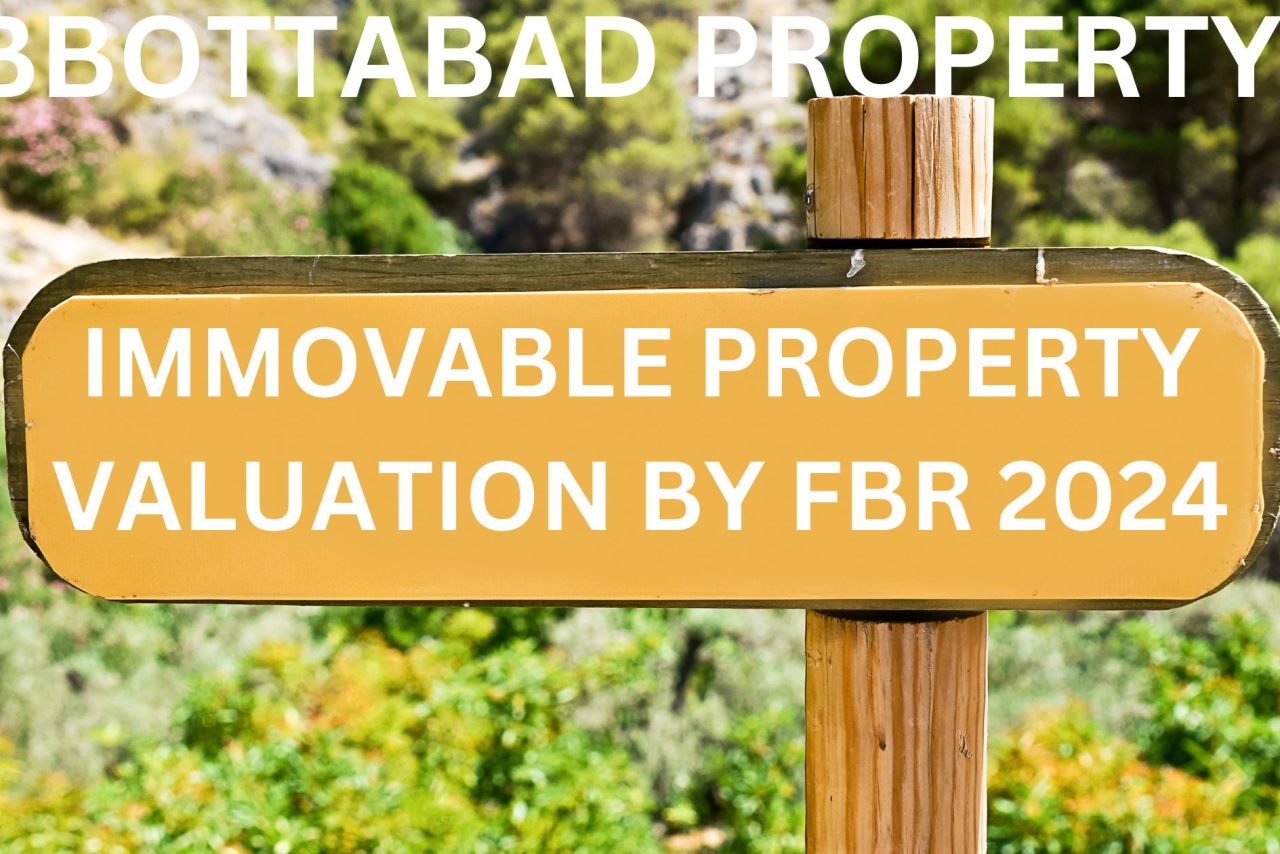
FBR Announces Up to 80% Increase in Property Valuation Rates Across 56 Cities: Key Insights
The Federal Board of Revenue (FBR) has unveiled a major update to property valuation rates, impacting 56 cities across Pakistan. Effective from November 1, these revisions see property rates surge by up to 80%, aiming to bridge the gap between declared property values and current market conditions. This move, announced on October 30, is part of the FBR’s ongoing efforts to ensure fair taxation and transparency in the real estate sector.
In this blog post, we’ll explore the key changes, tax implications, and broader impacts of this revision, along with what it means for property owners, investors, and the real estate market in Pakistan.
What’s New in the FBR’s Property Valuation Update?
The latest revision expands the scope of property valuation adjustments to 12 new cities, including Bannu, Chiniot, Kotli Sattian, and Ghora Gali. This builds on the previous coverage of 44 cities, bringing the total to 56 cities. According to FBR Chairman Rashid Mahmood Langrial, the adjustments are “moderately revised,” taking into account factors such as:
- Property type
- Geographic location
- Market dynamics
The updated valuation tables are now available on the FBR’s official website, with detailed rate schedules for various property categories. As of now, tables for approximately two dozen cities have been published, with more expected soon.
Why Are Property Valuation Rates Being Revised?
The FBR has been periodically updating property valuation rates since 2016, with similar revisions in 2018, 2019, 2021, and 2022. The primary goal is to align property values with real market prices, ensuring a fairer tax system. Here’s why this matters:
- Tax Collection: Accurate property valuations are crucial for calculating capital gains tax (CGT) and withholding tax.
- Market Transparency: The revisions aim to reduce under-declared property values, a common practice in Pakistan.
- Revenue Growth: By closing the gap between collector values and market prices, the FBR aims to boost federal tax revenues.
Tax Implications of the Revised Property Valuations
The revised valuations have significant implications for property transactions and tax collections. Here’s a breakdown of the key tax mechanisms involved:
1. Withholding Taxes
Under Sections 236C, 236K, and 7E of the Income Tax Ordinance, the FBR is authorized to collect withholding taxes on property transactions. These taxes are calculated based on the updated valuation rates.
2. Federal Excise Duty
A 5% federal excise duty is also imposed on real estate deals, as outlined in the latest budget. In the last fiscal year, nearly Rs150 billion in advance income tax was collected under these provisions.
3. Capital Gains Tax (CGT)
The revised rates will directly impact the calculation of CGT, ensuring that taxes are levied on property values closer to their actual market prices.
How Does This Impact Real Estate Investors and Property Owners?
The FBR’s move has sparked mixed reactions among stakeholders. Here’s what you need to know:
1. Moderate Rate Increases
A senior FBR official stated that the rate hikes are “marginally revised” and below market expectations. The new rates are based on mid-range plot values, ensuring they remain realistic.
2. Market Slowdown
Property transactions have slowed significantly in recent months, with little evidence of funds being redirected to more productive sectors. This raises concerns about the short-term impact on the real estate market.
3. Long-Term Benefits
While the revisions may cause short-term disruptions, they are expected to improve market transparency and ensure the real estate sector contributes more equitably to the national tax base.
Challenges in Property Valuation
Determining accurate property values is no easy task, especially in a diverse market like Pakistan. Key challenges include:
- Regional Variations: Property prices vary significantly across cities and even within housing societies.
- Under-Reporting: Many real estate transactions continue to be under-declared, complicating tax collection efforts.
- Valuation Errors: The FBR acknowledges that inaccuracies may occur in the valuation tables but promises prompt revisions as errors are identified.
Broader Implications for Pakistan’s Real Estate Sector
The FBR’s property valuation revisions are part of a broader effort to reform the real estate sector and improve tax compliance. Here’s what this means for the future:
1. Increased Transparency
By aligning property values with market conditions, the FBR aims to reduce speculative investments and promote transparency.
2. Economic Stabilization
The government hopes to channel investments from real estate into more productive sectors, boosting overall economic growth.
3. Investor Confidence
While the revisions may deter some investors in the short term, they are expected to create a more sustainable and transparent property market in the long run.
What Should Property Owners and Investors Do?
If you’re a property owner or investor, here are some steps to take:
- Review Updated Valuation Tables: Check the FBR’s official website for the latest rates applicable to your property.
- Consult Tax Professionals: Understand the financial implications of the revised rates on your transactions.
- Stay Informed: Keep an eye on further updates from the FBR and other relevant authorities.
Final Thoughts
The FBR’s decision to revise property valuation rates by up to 80% is a significant step toward aligning property values with market realities and enhancing tax revenues. While the move has raised concerns among real estate stakeholders, it underscores the government’s commitment to tax reform and economic stabilization.
FAQs
Why did the FBR increase property valuation rates? The FBR raised property valuation rates to better reflect current market prices and ensure a fair calculation of taxes like CGT and withholding tax. This is part of an ongoing effort to curb under-declared property transactions.
Which cities are affected by the latest FBR property valuation update? The revision affects 56 cities, with 12 new cities added to the coverage, including Bannu, Chiniot, Kotli Sattian, and Ghora Gali.
How will the new valuation rates impact property taxes? The updated rates will influence federal tax calculations, including capital gains and withholding taxes. It could lead to higher tax liabilities for property transactions if values are significantly increased.
When will the new property valuation rates come into effect? The revised property valuation rates are set to take effect on November 1, as announced by the FBR.
What challenges does the FBR face in property valuation? The FBR struggles with accurately determining property values due to the wide variation in prices across different cities and housing societies. Additionally, the underreporting of transaction values complicates tax enforcement.
How often does the FBR update property valuation rates? Property valuation rates have been revised multiple times in recent years, with updates in 2018, 2019, 2021, 2022, and now 2023, reflecting the FBR’s ongoing efforts to maintain market-relevant valuations.




Leave a Reply